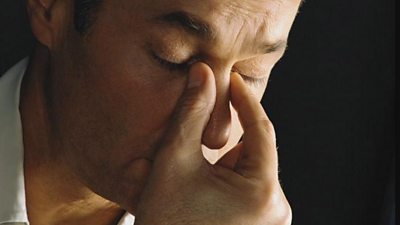Night time is considered to be the period between 11.00pm and 6.00am.
What Can Go Wrong?
- The points listed below are the potential effects of working nightshifts:
- Shift work (especially nightshifts) can disrupt our daily cycle of activities and body clock. Humans can usually adapt to temporary changes, but after a while a build-up of lost sleep causes fatigue which can affect our performance of day to day tasks.
- Medical conditions such as epilepsy and diabetes may be worsened by night shifts; and sometimes other illnesses can temporarily affect our ability to undertake night work. Managers should take account of the work being undertaken and aim to schedule shift work to the best effect for their staff.
- Adapting to shift work can be easy for some people while others never adjust. Taking the right approach to your wellbeing as described here can be instrumental in helping you. If you do find it difficult to adjust to shiftwork, you should discuss the problem with your supervisor or manager, your doctor, Occupational Health, or the EAP counselling service. They may be able to help you find a workable solution.
Legal/91�ȱ� Requirements
You are entitled to receive a 91�ȱ� Night Worker Health Assessment (see Wellbeing Night worker ) if you regularly work at least three hours during the night time period (between 11pm and 6am) either:
- On most of the days you work or;
- Often enough to say that you work such hours on a regular basis.
- ‘Regular’ means recurring - for example as part of a shift work rota. This does NOT include occasional or ad hoc work, eg to cover temporary events or short-term absences.
Control Measures
General Controls
- The control measures are broken down into several sections below. There is some additional information that should be considered before applying these controls at the end of this section.
- Please also see our Safety Short on 'Working Nightshifts' (see Useful Documents), which gives some more coping strategies.
For Shiftworkers
- Making your sleep the best it can be following the points below:
- Daytime sleeping can be challenging due to noise, light and temperature levels – so take some time to get these points right at home in the room you sleep.
- Identify a suitable sleep schedule that works for you and stick to it
- Use blackout blinds on your bedroom to help keep your bedroom dark for sleeping during the day
- Use an eyeshade if your bedroom isn’t dark enough for sleeping
- Make sure your bedroom is cool which is best for sleeping.
- Make sure your family, friends and neighbours understand your shift work pattern, its challenges, and what they can do to help you. Especially making less noise at the times you are trying to sleep.
- Turn your mobile off and disconnect the phone if you can, so that you are not disturbed whilst sleeping.
When on night shifts
- Have a short sleep just before your first night shift.
- Keep the light bright in your work area at night.
- Choose fruit as snacks, rather than chocolate or crisps.
- Avoid caffeine in tea, coffee or soft drinks to keep you awake, although they can be used occasionally if necessary.
- Don’t undertake safety critical work or drive if you are tired or drowsy.
- Avoid swapping shifts so that you work for longer on shift, in order to get a longer break, before your next shift.
- Go for a short walk or take a bath or read (i.e. relax) before going to sleep.
Eating and exercising
- Eat a healthy well balanced diet.
- You shouldn’t go to bed hungry, but avoid heavy meals just prior to bedtime.
- Don’t rely on alcohol to help you sleep as it will be worse in the long run.
- Sleeping tablets don’t tend to help, and most doctors are unwilling to prescribe them for any prolonged periods.
For those managing night shiftworkers – the assessment
- Make sure staff are aware of their entitlement to a night work assessment before they start night shift and at regular intervals. Then at least annually thereafter.
- The assessment is arranged through the 91�ȱ� Occupational Health service provider, by completing and submitting the 91�ȱ� Night Workers - Health Assessment Questionnaire (see Wellbeing Night worker )
- If the questionnaire indicates any potential health risks, individuals are offered a consultation with 91�ȱ� Occupational Health. If a registered medical practitioner advises that a night worker is suffering from health problems which the practitioner considers to be caused or made worse by night working, the 91�ȱ� will, where practicable, and in consultation with the individual concerned, adjust the individual’s working pattern to address the health concerns or transfer that individual to other suitable work.
- Managers must work with Occupational Health and HR to resolve any health issues identified through the assessment
- Keep a clear record of communications and a list of staff you have agreed are entitled to 91�ȱ� night worker assessments. Records are needed so the 91�ȱ� can demonstrate compliance with the law. Electronically stored e-mails, including recipient addresses, are sufficient for recording communications.
For those managing all shiftworkers – scheduling considerations
- Plan workload that is appropriate for the length and timing of the shift. Try to avoid safety critical work at the end of a nightshift and try to plan a variety of tasks during the shift.
- It is better to go from the morning shift to the afternoon shift to a night shift and to repeat the same cycle. The effects of shiftwork are similar to jet lag and it is easier for people to delay sleep than to go to bed earlier.
- Plan a work cycle that has no more than six 8-hour shifts or four 12-hour shifts. Avoid work cycles of more than seven continuous days. It is better to have no more than 3-4 consecutive night shifts on the trot in a rotating shift pattern
- If not strictly necessary for business needs try to avoid early morning starts before 7am.
- Rostered days off should not be in the middle of a night shift sequence.
- Allow for two free weekends in four.
- You must allow a minimum of 11 hours between shifts, preferably 12.
- Try to avoid overtime before or after a night shift (i.e. coming in early or staying later when scheduled to work at night, so that a longer shift is worked.)
- Plan and agree with staff rest breaks during night shift to help workers maintain alertness.
- Where work is planned to crossover several shifts, make sure there is adequate changeover time allowed between each shift to allow for briefing between workers. Systems for transfer of information and communication should be established and maintained, where required.
- Aim to give workers advance notice of their rotas well before the due date and minimise last minute changes wherever possible.
- Avoid rostering someone to work alone at night. If this is impossible, those working alone should have a way of communicating with colleagues to allow social contact.
- Appropriate security arrangements should be made/confirmed for shiftworkers, particularly when working after dark or over weekends, when on-site on 91�ȱ� premises.
Additional information about Circadian Rhythms
- The human body follows a daily rhythm, with regular peaks and troughs over a 24 hour period. These are called circadian rhythms and they regulate body functions such as temperature, metabolism, digestion, blood pressure, secretion of adrenalin, sleeping and waking.
- There has been a lot of research on night shift working, and this has focussed on the health effects of the disruption of the normal circadian rhythm. Research on night shift workers is not always straightforward because there are many types of shift and no standard way to record past night shift work.
- Sometimes different studies can come up with opposite conclusions. However it is generally accepted that the disruption of the circadian rhythm can lead to several health effects:
1. Biological effects
- Cardiovascular disorders
- Gastrointestinal disorders – including disturbance of appetite and digestion
- All workers can experience the health effects of night shifts. Some groups may be particularly affected, these are:
- Young workers and older workers
- New and expectant mothers
- Workers with pre-existing physical or mental health conditions such as depression, anxiety or disabilities
- Workers taking medication e.g. the effectiveness of insulin for diabetics may be affected by changing routines.
2. Psychosocial effects
- Sleep loss and fatigue
- Lowered performance
- Increased accidents
- Stress – especially if work schedules are inflexible and worker has less control
3. Cancer and shift work
- The HSE have carried out research which looked at the Burden of Occupational Cancer, published in 2010 which considers night shift working and breast cancer. The link is in Recommended links.
- The HSE does not presently regard the evidence about shift work and cancer as such that employers should be asked to do more to protect the health of their shift workers than is already required by the Working Time Regulations 1998 and HSG 256.
- The Industrial Injuries Advisory Council in the UK has published two Position Papers dealing with the association between shift working and breast cancer, the most recent one being in May 2013. They say that there remains insufficient evidence of a magnitude of effect that would support prescribing as an industrial disease but is continuing to monitor the research. The link is in Recommended links.
Division Specific Issues
- Ensure effective local arrangements are in place to inform relevant staff of the information contained in this guidance note and to keep the local records.
- Some divisions may have specific arrangements for managing shift and night shift workers, consult these where they exist.
FAQs/Did You Know?
- There are two films about Night Shift Working produced by the Academy, see the recommended links below.
- Individuals vary in their response to shift work and the timing of shifts. Some being Larks (better with morning shifts) or Owls (better later in the evening) – you tend to know which type you are.
- Managers of new or expectant mothers who work nights should obtain specific advice from 91�ȱ� HR Direct. If you are pregnant or have just returned from maternity leave you should inform your line manager or HR.
- Young workers (16-17 years old) may not ordinarily work at night between 22.00 and 6.00, or between 23.00 and 7.00. However, exceptions can apply. (See 'Gov.UK: Night working hours' in Recommended Links)
- Some work patterns require justification and approval of a senior manager, see the Scheduling policy.
Useful documents
-
-
[91�ȱ� Network]
Recommended links
-
[Gateway]
-
[Academy]
-
[Academy]
-
-
-
-
Personal Health & Wellbeing topics
-

Drugs and Alcohol
The 91�ȱ� has an agreed Policy in relation to Drugs and Alcohol. This guidance is extracted from that policy. In the case of doubt the 91�ȱ� Drugs and Alcohol Policy has precedence. -

Influenza
A guide to influenza, or 'flu', for individuals seeking general advice or during an epidemic or pandemic situation. -

Mental Health
Guidelines relating to mental health providing guidance and advice. -

Night Filming and Recording
A guide to working at night on location between sunset and sunrise (approx 2300 - 0600). -

Night Shifts and Shift Working
How to minimise the effects of night shift working. -

Pregnancy
A guide to health and safety considerations for pregnant and nursing mothers. In general day-to-day work activity is not harmful in pregnancy. There are, however, some work factors that can cause harm and need to be considered. -

Pressure and Stress
A guide to recognising and managing pressure and stress. -

Tiredness and Fatigue
A guide to the scheduling and management of your team’s working hours to help safeguard them from the effects of fatigue.
More from SSR
-
Your platform to record accidents, risk assessments, assurance monitoring and inspections
-
Safety Equipment Stores
Just one number to call: 020 3614 5155 -
91�ȱ� Safety Guidelines
An A-Z of 91�ȱ�'s Health and Safety Guidelines -
Safety Advice Line: 0370 411 0464 Email: safety@bbc.co.uk
Events guidance - key links:
- Exhibitions
- General Guidance
- Indoor Location Recce Checklist
- Outdoor Location Recce Checklist
- Major Incidents & Emergency Planning
- Marketing and Promotional
- Noise Exposure
- Planning and Management
- Responsibilities
- Responsibilities Form
- Laser Lighting Effects
- Strobe Lighting
- Temporary Stages and Rostra
Health topics - key links:
- (91�ȱ� network only)
- Contributors Fitness to Participate
- Display Screen Equipment (DSE)
- (91�ȱ� network only)
- First Aid and Welfare on Location
- International Travel - Risks & Health
- Manual Handling
- Mental Health: 91�ȱ�page
- (91�ȱ� network only)
- Personal Health and Wellbeing
- Pregnancy
- Psychological Trauma Support & Trauma Risk Management (TRiM)
- Tiredness and Fatigue
- Travel Health Contacts
91�ȱ� High Risk - key links:
- CBRN and Industrial Spills
- Covert Filming
- Crisis Management and Security Support
- Demonstrations, Protests and Crowds
- Disaster Coverage
- Door Stepping
- (91�ȱ� network only)
- (91�ȱ� network only)
- Public Order
- Safety Equipment Stores
91�ȱ� Journalism - key links:
91�ȱ� Productions - key links:
- Aerial Filming and Airfields
- Animals: Displaying and handling for performance
- Boats: Working on
- Children and Young People
- Driving
- Electrical Equipment and Systems
- First Aid and Welfare on Location
- Food Safety (Cooking and Catering)
- Remote Location Working
- Roads and Streets: Working by
- Security of Productions on Location
- Stunts
- Tiredness and Fatigue
- Unmanned Aerial Systems (UAS aka Drones)
- Vehicles: Recording in, from and around
- Working at Height: Mobile Elevating Work Platforms
- Working at Height: Tower Scaffolds
91�ȱ� Radio - key links:
- (91�ȱ� Network only)
91�ȱ� Security - key links:
91�ȱ� Sport - key links:
About this site
This site describes what the 91�ȱ� does in relation to managing its health, safety and security risks and is intended for those who work directly for the 91�ȱ�.
It is not intended to provide instruction or guidance on how third parties should manage their risks. The 91�ȱ� cannot be held liable for how this information is interpreted or used by third parties, nor provide any assurance that adopting it would provide any measure of legal compliance. More information
Some links on this site are only accessible when connected to the 91�ȱ� network
